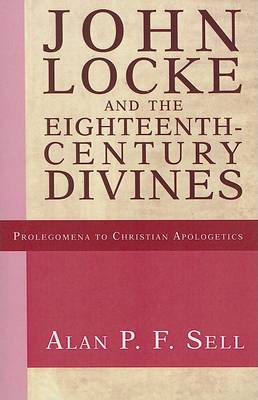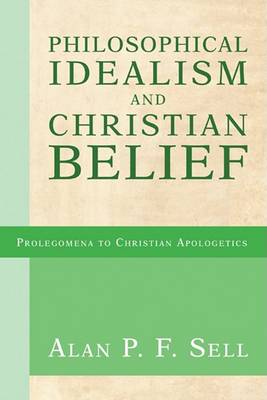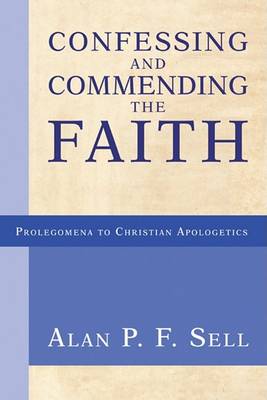Prolegomena to Christian Apologetics
3 total works
This monograph provides a detailed account of the influence of John Locke upon the religious thinkers of the 18th century, and discusses the implications for Christian apologetics. Many religious writers responded to Locke but, as the author shows, the responses ranged from enthusiasm to hostility.
There is now renewed and growing interest in post-Hegelian idealism, which was in its heyday at the end of the nineteenth century. This book is concerned with the religious and socio-ethical aspects in the writings of selected idealists. It addresses the question: was post-Hegelian philosophical idealism, in its friendliest guise, more a help than a hindrance to the expression of Christian convictions and the articulation of Christian doctrines? In pursuit of an answer, the author discusses the writings of seven British idealists who, if not in every case entirely doctrinally orthodox, were by no means unkindly disposed towards the Christian faith: T. H. Green, Edward Caird, J. R. Illingworth, Henry Jones, A. S. Pringle-Pattison, C. C. J. Webb, and A. E. Taylor. The book opens with an account of the formative intellectual influences upon the seven idealists and their consequent philosophical positions. There follows chapters on God, ethics and society, and Christian doctrine. The conclusion passes some positive and negative judgements upon post-Hegelian idealism in so far as it bears upon, or expresses, Christian belief.
Since Christianity is a way and not simply a theory, commending the faith to others is an activity in which every Christian participates. Confessing and Commending the Faith discusses the presuppositions which underlie the intellectual commendation of Christianity in the face of the philosophical challenges of the present day. Following his earlier books, John Locke and the Eighteenth-Century Divines and Philosophical Idealism and Christian Belief, Alan Sell proposes a way of proceeding with Christian apologetics in the twenty-first century. He discusses what Christians wish to proclaim, asks whether these claims are reasonable and examines what is involved in the intellectual commendation of the Christian faith. Confessing and Commending the Faith makes extensive use of the historical tradition of apologetics and brings this work to bear on contemporary questions such as the meaning, use and reference of religious language, and the question of transcendence in relation to history. Alan Sell argues that if the intellectual commendation of Christianity's claim to truth is to be viable, contemporary apologetics must draw upon reason, revelation and experience to do justice to Christianity's basic confession of Christ as Saviour and Lord.


